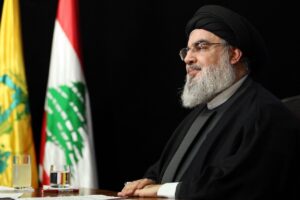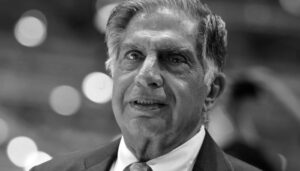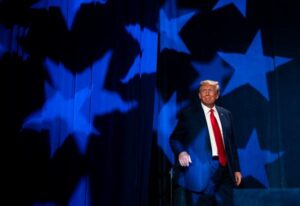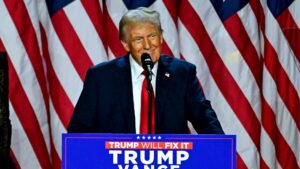Jaishankar’s Islamabad Visit: A Chance for Dialogue
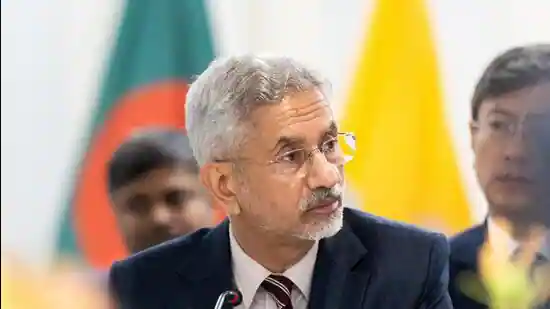
India’s External Affairs Minister S. Jaishankar’s recent visit to Islamabad for the Shanghai Cooperation Organisation (SCO) Summit is seen as a positive development for those yearning for peace between India and Pakistan. This visit has sparked hope among many citizens who desire improved bilateral relations. If Prime Minister Narendra Modi had also attended the summit, it could have further accelerated the process of normalizing relations between the two neighboring countries. In a significant move, Punjab Chief Minister Maryam Nawaz proposed the concept of climate diplomacy, which opens a new avenue for dialogue between the two nations and presents a refreshing approach to fostering cooperation.
The context of Jaishankar’s visit is essential in understanding the strained relations between India and Pakistan. Former Foreign Minister Bilawal Bhutto Zardari represented Pakistan at a conference in Goa last May. However, the recent elections in Pakistan led to the formation of a new government that has yet to prioritize the resumption of dialogue with India. Simultaneously, the right-wing government in New Delhi has shown little interest in improving relations with Pakistan, resulting in a prolonged period of diplomatic stalemate.
From 1947 to 2024, the relationship between Pakistan and India has never experienced as much strain as during the tenure of the Pakistan Tehreek-e-Insaf (PTI) party. This deterioration can be traced back to August 5, 2019, when the Indian government revoked Article 370 of its constitution, which granted special status to Jammu and Kashmir. This unilateral decision not only escalated tensions but also had profound implications for the relationship between the two countries. The PTI government responded by suspending trade relations with India and recalling both countries’ high commissioners.
The aftermath of this decision led to a significant downgrade of diplomatic relations. Most of the staff at the high commissions in Islamabad and New Delhi returned home, and both nations imposed bans on film screenings. Additionally, the Indian government, under pressure from right-wing extremists, effectively banned Pakistani artists from entering India and participating in films and concerts. This atmosphere of hostility not only affected cultural exchanges but also severed critical economic ties.
During this turbulent period, India managed to forge substantial investment and industrial agreements with Pakistan’s traditional allies, Saudi Arabia and the United Arab Emirates (UAE). In a striking development, the UAE has decided to entrust the management of its nuclear installations to Indian companies, showcasing India’s growing influence in the region.
Imran Khan’s government, in response to India’s actions in Kashmir, initiated a diplomatic campaign to rally support from the international community. However, the shifting global dynamics resulted in limited success for these efforts. While Pakistan’s relations with India continued to deteriorate, it was Pakistan that ultimately bore the brunt of these severed ties. India made significant advancements in the medical field, establishing state-of-the-art hospitals in cities like New Delhi, Mumbai, and Bangalore. These facilities offer high-quality treatment at prices that are significantly lower than those in Europe and the United States.
As diplomatic relations deteriorated, India began to delay the processing of visa applications for Pakistani citizens. The fortunate few who managed to obtain visas often sought medical treatment in Indian hospitals. Some patients arrived too late for treatment, while others returned healthy after receiving care. However, the trade embargo imposed by both governments inflicted severe damage on Pakistan’s economy. India sources raw materials for pharmaceutical production at competitive prices from countries like China. With trade halted, Pakistan faced shortages of essential medicines, and the prices of these drugs soared due to increased import costs from alternate sources.
The consequences of this breakdown in relations were particularly pronounced in Sindh and Balochistan. The inability to import vaccines from India resulted in severe shortages, exacerbating public health issues. The suspension of insulin for diabetes and essential heart medications became critical problems for patients in Pakistan. As the value of the Pakistani rupee fell, the prices of medicines skyrocketed, making healthcare increasingly inaccessible for ordinary citizens. When the government requested pharmaceutical companies to lower drug prices, many critical medicines disappeared from the market entirely. Had there been a continued import of medications from India, the impact on prices could have been mitigated.
In addition to the pharmaceutical crisis, the economy of Pakistan faced staggering inflation in the prices of wheat, lentils, vegetables, and meat. If trade with India had been permitted, it is likely that the sharp rise in prices could have been avoided. Similarly, the ban on the importation of newspapers and books from India limited access to a wealth of knowledge. India has a vibrant publishing industry that produces affordable and high-quality books on a wide range of topics. Yet, due to the lack of interest from smugglers, books were rarely included in contraband shipments, further depriving Pakistanis of valuable resources.
This year, Pakistan faced a significant decline in cotton production, leading to the shuttering of textile mills. The owners of these mills have pointed out that cotton imported from countries other than India is prohibitively expensive, leading to inflated production costs. They argue that if cotton imports from India were resumed, the textile crisis could be alleviated, allowing this critical sector of the economy to recover.
For years, cricket matches between the national teams of Pakistan and India have taken place at neutral venues, such as Dubai and the United Kingdom. Recently, matches have even been held in the United States. However, these events primarily benefit the elite, as the average sports fan in both countries is often excluded from attending. Reviving matches in cities across Pakistan and India could provide an opportunity for fans from all socio-economic backgrounds to enjoy these sporting events together. India should seriously consider sending its cricket team to participate in the Champions Trophy in Pakistan, which could serve as a platform to strengthen ties.
While cricket and cultural exchanges are essential aspects of the relationship, extremist groups in India have made it increasingly difficult to screen Pakistani films. This month, the much-anticipated film “The Legend of Maula Jatt” is set to release in Indian cinemas. However, extremist religious groups often obstruct any attempts to normalize relations between the two countries. This stands in stark contrast to the visions held by the founding fathers of both nations. Muhammad Ali Jinnah, the founder of Pakistan, and Mahatma Gandhi, the founder of India, both advocated for friendly relations and cooperation between their respective nations.
Mahatma Gandhi, born in October, once embarked on a hunger strike to ensure that Pakistan received its rightful share of financial assets. He also announced his intention to visit Pakistani Punjab to promote harmony and bridge the divide between Hindus and Muslims. Tragically, Gandhi’s commitment to peace led to his assassination by an extremist Hindu who opposed his efforts to foster goodwill. This historical context serves as a reminder that despite their shared geography, India and Pakistan have been plagued by conflicts that hinder cooperation and mutual benefit.
As neighbors, it is crucial for India and Pakistan to understand that they cannot change their geographic realities. Both governments must recognize the significance of taking foundational steps to normalize relations. Doing so could facilitate the broader goal of poverty alleviation and economic cooperation. The people of both nations deserve the opportunity to experience the benefits of peace and collaboration, rather than being trapped in a cycle of animosity and distrust.
In conclusion, Jaishankar’s visit to Islamabad for the SCO Summit marks a potential turning point in the long-standing rivalry between India and Pakistan. By embracing dialogue, promoting cultural exchanges, and focusing on economic cooperation, both countries can pave the way for a brighter future. Climate diplomacy, as suggested by Punjab Chief Minister Maryam Nawaz, offers an innovative approach to building bridges and fostering mutual understanding. As the leaders of both nations reflect on the historical ties that bind them, they should prioritize the well-being of their citizens and take meaningful steps toward peace and collaboration. Only then can India and Pakistan hope to transform their relationship from one of hostility to one of partnership and shared progress.

